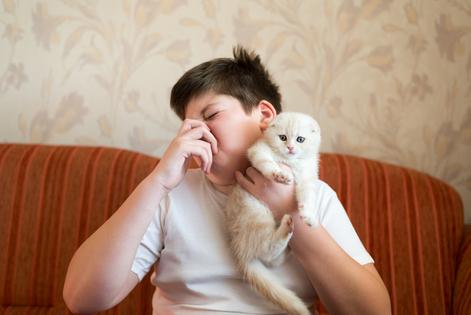My Pet World: What’s causing 'Harmony’s' odor? And how do I add a new dog to my aging pack?
Dear Cathy,
About six months after adopting our cat, Harmony, she started leaving a strong odor behind on anything she laid on. While we haven’t confirmed she’s urinating on surfaces, there’s definitely a smell that isn’t normal. Our current vet shaved her bottom, and we limited her food consumption to help her lose weight.
The vet tested her urine for bladder, kidney, and UTI issues; everything came back clear. Despite all this — and my wife washing Harmony’s bottom almost daily to manage the smell — we’re still dealing with the issue. Harmony has bunched hair near her backside, which we regularly trim, but she resists being touched near that area, even growling or trying to bite. What should we do next?
— Bob, Loganville, Pennsylvania
Dear Bob,
Harmony’s weight may be affecting her ability to properly groom herself, as indicated by the bunched hair near her backside. As a result, she could have blocked anal glands. If these glands aren’t naturally expressed, they can become impacted or infected, leading to the kind of smell you’re describing and possibly causing the sensitivity she shows when touched near her back end.
Ask your vet to show you how to express her anal glands, as this may need to be done regularly at home. Daily cleaning and expressing the glands can reduce the odor significantly and help keep her more comfortable. Grooming wipes designed for cats can also be a convenient way to keep her clean between these sessions.
In addition, continue to manage Harmony’s weight for her overall health and to improve her ability to groom herself. Feeding her more wet food and reducing dry food can help. Wet food is typically lower in carbs and higher in moisture content, which can also benefit her health. If she prefers dry food, consider switching to a weight management formula to limit calories while providing essential nutrients.
By expressing her anal glands regularly and managing her diet for weight loss, you should start to see an improvement in both the odor and her comfort at being touched.
Dear Cathy,
My big dog passed in August, and I’m looking for a second dog. I’m considering an Aussie Doodle puppy or a Blue Heeler, and plan to visit one of the local shelters. My other dog is getting up there in age and has trouble getting up after sleeping for several hours. I usually only take her into the backyard to do her business since she’s no longer up for long walks. I miss walking — something I haven’t done much since my other dog passed — and now my senior dog is aging faster than I ever imagined.
I’m concerned about how bringing a new dog into the home might affect her. I don’t want her to feel jealous or upset if I adopt a younger dog and begin taking it on regular walks. I also want to avoid creating any friction between them. At this time, I don’t want to adopt an older dog, as I don’t think I can go through the heartbreak of losing another one so soon. I’m open to any suggestions or guidance you can offer.
— Michael, Kingman, Arizona
Dear Michael,
I am sorry to hear about your big dog’s passing. It sounds like you’re going through a lot as your other dog ages.
Choosing an older dog rather than a high-energy puppy may better fit your family and for her. I am not suggesting another senior dog, but a dog around one- or two-years old who has grown out of the puppy stage and can bring a calmer energy into the home so your senior dog is not overwhelmed.
Whether older dog or puppy, to help ease the transition, I recommend giving your senior dog more attention during those first few weeks. This extra attention can help prevent your senior dog from becoming jealous or insecure. Activities like cuddle time, gentle play, or even a short “sniff adventure” around the yard can be wonderful ways to engage her. Sniffing is mentally enriching, so if you take her out separately, even briefly, she won’t feel left out. After a week or two, your senior dog may even find comfort having a new companion around.
Visiting a local shelter and introducing your senior dog before adopting is a great way to find the right match. Shelters often have one- and two-year-old dogs overlooked for puppies, so your interest in an older dog could help a harder-to-place pup find a home. Thank you for being so thoughtful in your decision.
_____
_____
========
(Cathy M. Rosenthal is a longtime animal advocate, author, columnist and pet expert who has more than 25 years in the animal welfare field. Send your pet questions, stories and tips to cathy@petpundit.com. Please include your name, city, and state. You can follow her @cathymrosenthal.)
©2024 Tribune Content Agency, LLC.
(c) 2024 DISTRIBUTED BY TRIBUNE MEDIA SERVICES, INC.












Comments